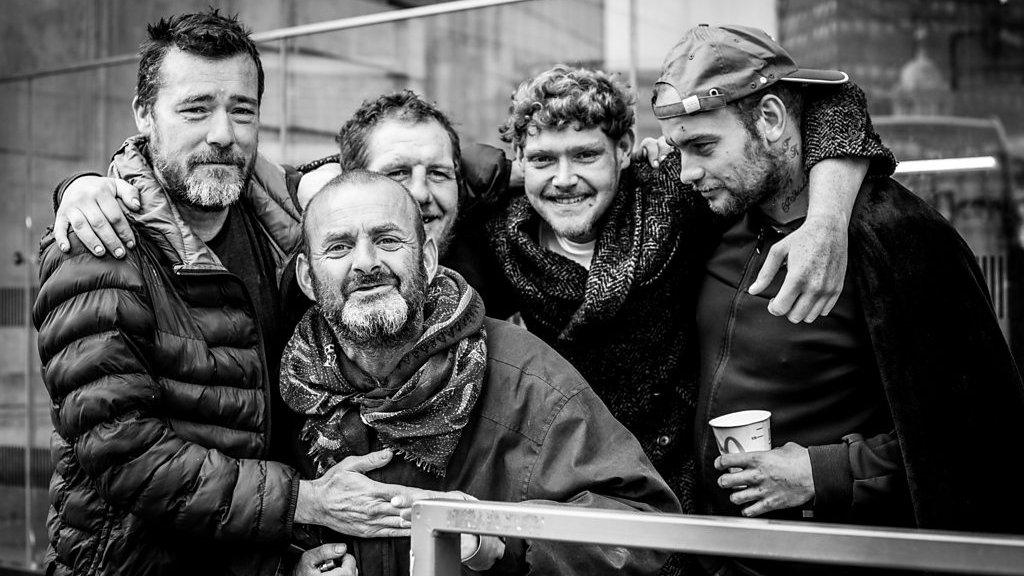Rough sleeping: London charities seeing 'significant' increase
- Published
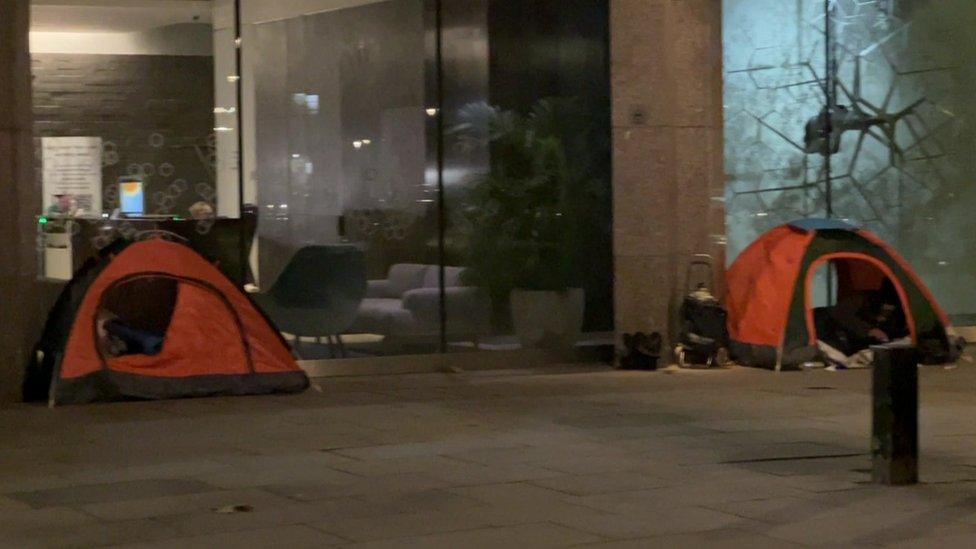
Homelessness charity St Mungo's says the cost-of-living crisis is pushing more people on to the streets
London charities say they are seeing a "significant" increase in rough sleeping as winter begins.
The latest figures from the Combined Homelessness and Information Network (Chain) show a 35% increase in new rough sleepers compared to last year.
It comes as London Mayor Sadiq Khan launched his annual winter rough sleeping fundraising campaign.
BBC London stepped out with St Mungo's outreach team to learn more about what they are seeing.
Chain is a multi-agency database, external recording information about people sleeping rough and the wider street population in London, commissioned and funded by City Hall.
Its latest research showed the number of new rough sleepers recorded in July to September 2022 was 35% higher than the same period last year.
In addition, the number of rough sleepers deemed to be regularly sleeping on the streets from July to September was 13% higher than the same period last year.
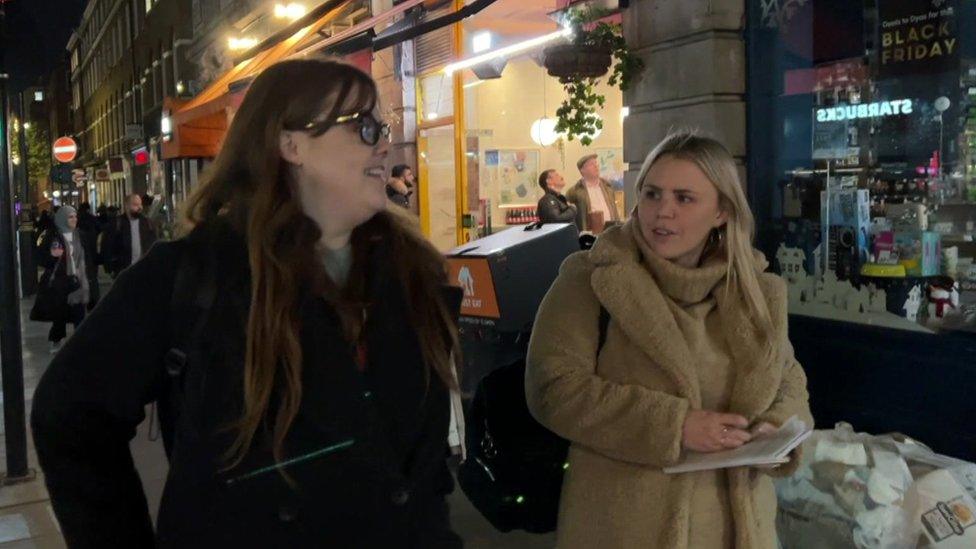
St Mungo's case co-ordinator Ella Godfrey said her outreach team receive more than 100 referrals each week
Ella Godfrey, a case co-ordinator for homelessness charity St Mungo's, guided us through her patch covering a wide area in north London. She said the outreach team received dozens of referrals each week about rough sleepers - a "substantial" increase compared to last year.
She added this included people who were "brand new to the streets, who may never have become homeless if the financial situation in the country wasn't what it is", as well as a high proportion of people who were "living in private lets or similar accommodation before".
'Recipe for disaster'
During the evening we came across people sleeping in tents and hanging up their washing near a busy Tube station, and Ella spoke to a family who had been sleeping rough because of a lost job and lost accommodation, and someone who could not gain access to their home.
"The cost-of-living crisis is also having a large impact on new rough sleepers," she said.
"There are a lot of individuals who aren't able to keep up with the cost of their energy bills or are experiencing higher rates of food poverty; and a lot of individuals who might lose their job and then struggle to find another one.
"It's just a bit of a recipe for disaster."
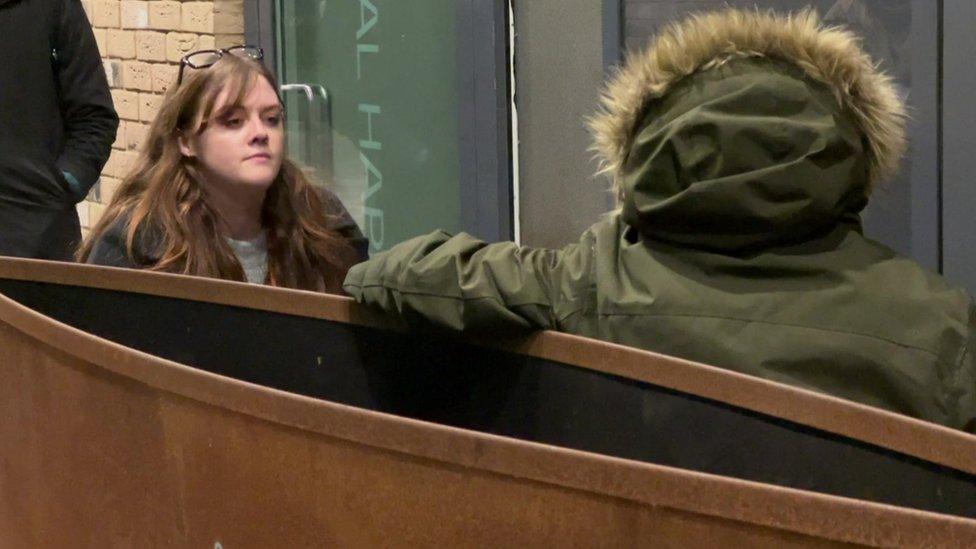
Ella explained that bed spaces weren't "something we're able to offer much these days - largely due to the cost"
One thing that is helping the charity's work is the StreetLink service, external - where users can report themselves or a member of the public sleeping rough via website, telephone or on a dedicated app.
Ella explained the outreach team was fairly small and worked with First Response volunteers, who check whether an individual is still at a reported location before sending out St Mungo's staff, enabling them to target their efforts more effectively.
She said: "We probably get over 100 StreetLink referrals per week and it's way too many for us to deal with by ourselves, so the First Response volunteers are really helpful."
In response to complex needs among the rough sleeping community, St Mungo's has staff who focus on helping people with mental health needs, and a physical health specialist who makes visits with GPs and nurses.
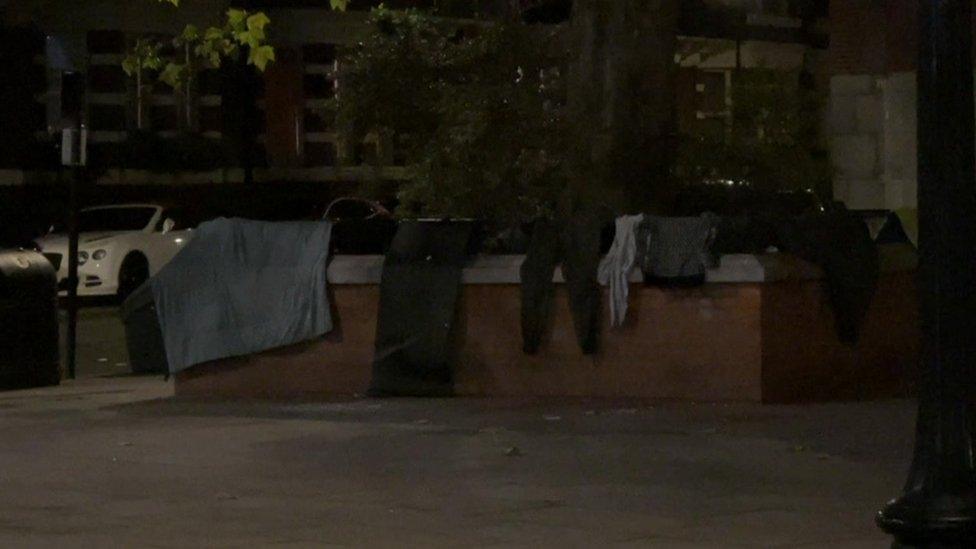
The government said it was supporting London with up to £172m from its Rough Sleeping Initiative
However, the impact of the economic situation and legacy of the pandemic have made it harder for homelessness charities to find everyone accommodation who needs it, Ella said.
"To be able to approach an individual and say, 'I've got a bed space for you now, tonight', is the bread and butter of our jobs but it's not something we're able to offer much these days - largely due to the cost of it.
"Unfortunately, due to Covid we also lost a lot of our emergency centres as a lot of them are shared spaces," she added.
It was amid this situation that the mayor launched his annual winter rough sleeping fundraising campaign with TAP London, external, during a visit on Friday to a No Second Night Out assessment accommodation service in Lambeth, which provides people with a room while they receive support.
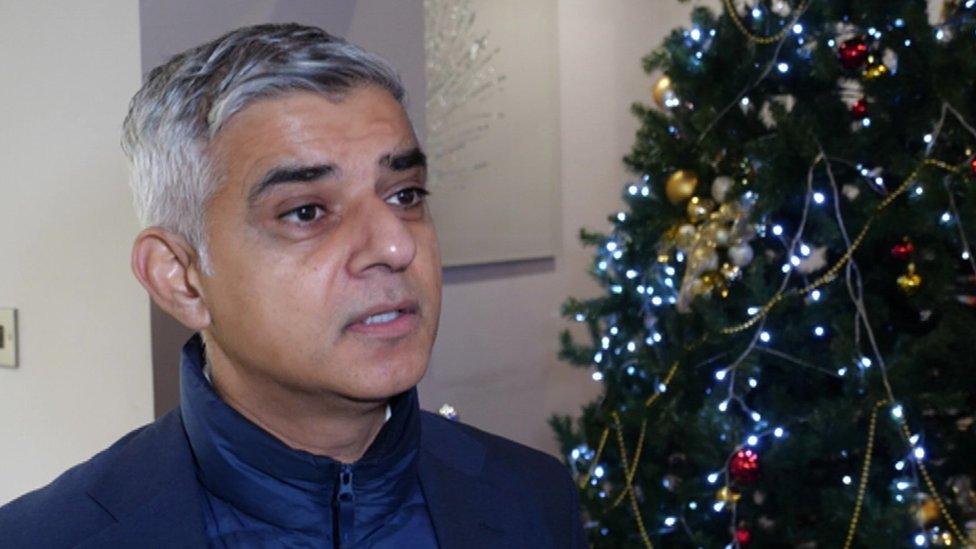
The mayor said without government support, charities and local government could only "scratch the surface"
Sadiq Khan said: "Over the last six years we've managed to get off our streets more than 13,500 people, more than 75% have stayed off our streets, and we've also made sure more than 1,000 are in permanent homes built by City Hall."
He added: "London is one of the most expensive places to live, we know that, but it's made even worse with the cost-of-living crisis."
Without government support, the mayor said, charities and local government could only "scratch the surface". He called on the government to make changes to welfare laws and to freeze rents so "people don't fall through the cracks".
In September, the government launched a £2bn strategy, with the stated aim of ending rough sleeping for good., external
A government spokesperson said the latest official statistics show that rough sleeping had almost halved since 2017.
They added: "We are also supporting London boroughs and the Greater London Authority with up to £172m from the Rough Sleeping Initiative, which will provide thousands of beds and help individuals find work, manage their finances and access mental and physical health services."

Follow BBC London on Facebook, external, Twitter , externaland Instagram, external. Send your story ideas to hellobbclondon@bbc.co.uk, external
Related topics
- Published23 November 2022
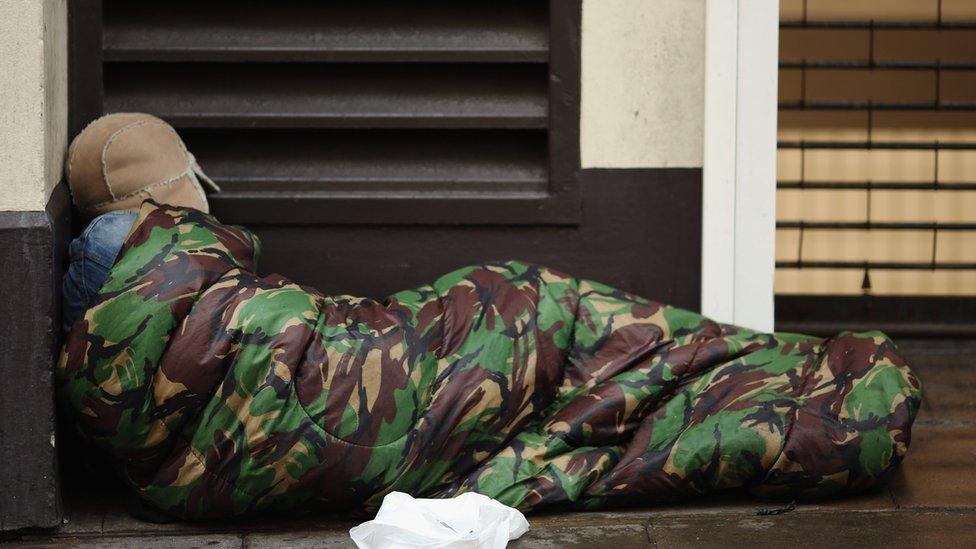
- Published30 October 2022
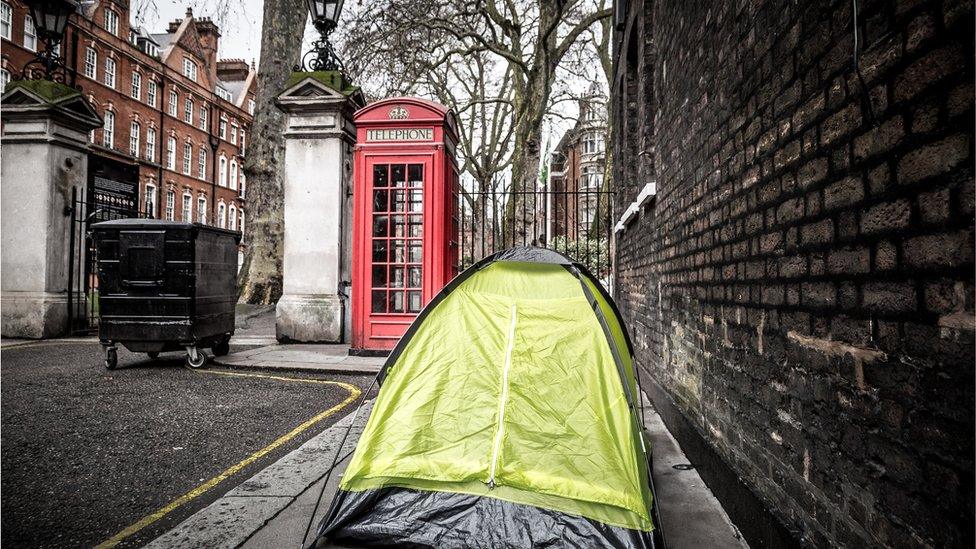
- Published24 September 2021
